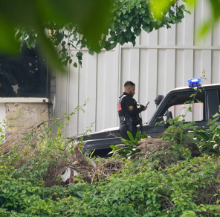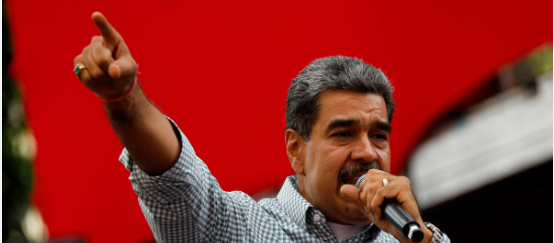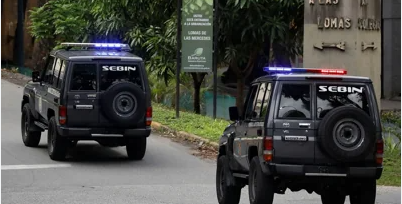In a significant development that could further strain regional diplomatic relations, Venezuela has revoked Brazil’s custody of its diplomatic mission in Caracas. This mission, a Brazilian Embassy residence, has been providing sanctuary to six Venezuelan opposition figures who are critical of President Nicolás Maduro’s government. The revocation is the latest move in the complex geopolitical struggle involving Maduro’s government, Brazil’s administration, and the broader South American political landscape.
The decision has sparked a tense standoff between the two neighboring countries, highlighting the deeper ideological and diplomatic rift that has been widening over the past several years. Brazil, under President Luiz Inácio Lula da Silva, had previously distanced itself from the anti-Maduro stance of former President Jair Bolsonaro, but this incident presents a fresh diplomatic dilemma for the new administration.
This article delves into the reasons behind Venezuela’s decision, the history of Brazil-Venezuela relations, the political context of the opposition figures in question, and the potential implications this standoff may have on regional stability.  for more information click on this link
for more information click on this link
Background: The Diplomatic Mission and Its Occupants
1. The Role of the Brazilian Embassy in Caracas
The Brazilian diplomatic mission in Venezuela, specifically the embassy residence, has long been a significant symbol of the diplomatic relations between the two countries. However, it took on a new role in recent years as a place of refuge for political dissidents and opposition figures, especially during Venezuela’s ongoing political crisis.
In this particular case, the mission houses six high-profile opposition figures, most of whom are key critics of Maduro’s administration. These individuals sought refuge in the embassy in the wake of political crackdowns, fearing persecution, arrest, or worse under Maduro’s rule. The embassy’s role as a sanctuary has placed Brazil in a delicate position, balancing the diplomatic protocols of offering refuge with the potential political consequences of harboring Maduro’s adversaries.
2. The Six Opposition Figures
The six opposition members residing in the Brazilian diplomatic mission include influential political leaders and activists who have been at the forefront of Venezuela’s pro-democracy movement. Among them are former lawmakers, activists, and figures associated with the opposition coalition that had been seeking to oust Maduro from power through political means.
These opposition members have been living under diplomatic protection for an extended period, waiting for safe passage out of the country or a shift in the political landscape that would allow them to return to public life without fear of reprisal. Their presence in the Brazilian embassy has been a point of contention between the two nations, with Maduro’s government viewing them as fugitives or traitors.  for more information click on this link
for more information click on this link
Venezuela’s Decision to Revoke Custody: Underlying Motives
1. Maduro’s Tightening Grip on Power
One of the primary reasons behind Venezuela’s revocation of Brazil’s custody over the diplomatic mission is President Nicolás Maduro’s ongoing effort to tighten his grip on power. Over the years, Maduro’s government has faced numerous challenges, including international sanctions, widespread protests, and significant economic instability. Despite this, his regime has managed to remain in control, partly through a combination of strategic alliances and internal crackdowns on opposition figures.
By revoking Brazil’s custody of the diplomatic mission, Maduro is sending a clear message: his government will no longer tolerate foreign powers harboring individuals that he perceives as threats to his authority. The move is intended to show that Maduro is in full control of his country’s sovereignty and will not bow to foreign pressure or interference in Venezuela’s internal affairs.
2. A Response to Regional Shifts
Another possible motivation behind this move is Venezuela’s reaction to regional political shifts. The revocation comes at a time when the political landscape in Latin America is undergoing significant changes. Brazil, under President Lula, has taken a more moderate approach to its foreign policy compared to the previous Bolsonaro administration, which had openly supported opposition figures in Venezuela.
Maduro’s government may view Brazil’s new administration as more likely to engage diplomatically, making it a ripe moment to test Brazil’s resolve by forcing the issue of the opposition figures housed in the embassy. The revocation of custody could be a way of gauging how far Brazil is willing to go in terms of supporting the Venezuelan opposition under the new political leadership.
3. Symbolic Assertion of Sovereignty
Revoking Brazil’s custody of the diplomatic mission is also a symbolic assertion of sovereignty. Maduro’s government has frequently positioned itself as standing against foreign interference, particularly from Western nations and their allies. By reclaiming control of the diplomatic mission, Maduro is reinforcing the narrative that Venezuela will not allow foreign embassies to be used as safe havens for political dissidents.
This move could also be intended to set a precedent for other embassies that might be harboring opposition figures. By taking a firm stance with Brazil, Maduro is signaling to other countries that similar actions may be taken if they continue to offer refuge to individuals he considers enemies of the state.
Brazil’s Response: A Diplomatic Dilemma
1. Lula’s Balancing Act
For Brazilian President Lula da Silva, the revocation of custody poses a significant diplomatic challenge. While Lula has taken a more neutral stance on Venezuela compared to his predecessor, he cannot afford to appear weak or overly accommodating to Maduro’s demands, especially given the political sensitivities surrounding Venezuela in Brazil.
At the same time, Lula is likely reluctant to escalate tensions with Venezuela, as this could jeopardize broader diplomatic efforts in the region. Brazil has traditionally been a key player in regional diplomacy, and Lula’s administration is eager to re-establish its leadership role after the Bolsonaro era, which saw Brazil become more isolated on the global stage.
2. International Pressure and Human Rights Concerns
Brazil also faces pressure from the international community, particularly regarding human rights. The presence of the six opposition figures in the embassy raises questions about their safety and the broader human rights situation in Venezuela. Should Brazil comply with Venezuela’s demands to hand over custody of the embassy, it could face accusations of abandoning its commitment to protecting political refugees and human rights defenders.
Moreover, human rights organizations and international bodies are likely to scrutinize Brazil’s actions closely. Any perception that Brazil is turning its back on political dissidents could harm its reputation on the global stage, especially among Western nations and human rights advocates.  for more information click on this link
for more information click on this link
Potential Outcomes: What Happens Next?
1. Diplomatic Negotiations
One possible outcome of this standoff is that Brazil and Venezuela engage in diplomatic negotiations to resolve the issue. Brazil may seek to find a solution that allows the opposition figures to leave the embassy safely, perhaps through arrangements with a third country that would grant them asylum.
This type of negotiation would likely take place behind the scenes, with both countries trying to avoid further escalation. Brazil may attempt to use its diplomatic leverage to ensure that the opposition figures are not arrested or harmed upon leaving the embassy, while Venezuela could seek assurances that Brazil will not continue to offer refuge to individuals critical of Maduro’s government.
2. Potential Asylum for the Opposition Figures
Another possible outcome is that Brazil facilitates the safe passage of the six opposition figures to another country willing to grant them asylum. This has been a common practice in similar situations, where political dissidents are allowed to leave their home country in exchange for guarantees that they will not continue their political activities while in exile.
For the opposition figures, finding asylum in a third country could be their best option for avoiding imprisonment or persecution in Venezuela. Countries in Europe or the Americas, which have a history of offering asylum to political refugees, could play a role in resolving the crisis.
3. Escalation of Diplomatic Tensions
There is also the potential for the situation to escalate, leading to a deterioration of relations between Brazil and Venezuela. If Brazil refuses to comply with Venezuela’s demands, Maduro’s government could take further steps to assert control over the diplomatic mission, including expelling Brazilian diplomats or severing diplomatic ties.
Such an escalation could have broader implications for regional stability, as it would strain relations between two of South America’s largest and most influential countries. It could also embolden other authoritarian regimes in the region to take similar actions against foreign diplomatic missions, potentially endangering political refugees across the continent.
Broader Implications for the Region
1. The Role of Regional Organizations
This diplomatic standoff could also test the role of regional organizations, such as the Organization of American States (OAS) and the Union of South American Nations (UNASUR), in mediating conflicts between member states. Both organizations have been involved in efforts to address the political crisis in Venezuela, but their influence has waned in recent years.
If the situation continues to escalate, regional bodies may be called upon to mediate between Brazil and Venezuela, seeking a diplomatic solution that respects the sovereignty of both nations while protecting the rights of political refugees.
2. Venezuela’s Ongoing Political Crisis
The revocation of Brazil’s custody of the diplomatic mission is just one example of the broader political crisis in Venezuela. Maduro’s government continues to face significant challenges, including international sanctions, widespread poverty, and internal dissent. The presence of opposition figures in foreign embassies is a symptom of the deeper political and social divisions that have plagued the country for years.
As the situation in Venezuela remains precarious, the actions of foreign governments, such as Brazil, will continue to play a crucial role in shaping the future of the country and the region as a whole.
Conclusion
The decision by Venezuela to revoke Brazil’s custody of its diplomatic mission in Caracas marks a new chapter in the ongoing political crisis in the region. This incident highlights the complexities of international diplomacy, human rights, and political asylum in a deeply polarized environment. The world will watch closely as Brazil navigates this difficult diplomatic terrain, with the safety of the six opposition figures and the future of Brazil-Venezuela relations hanging in the balance. ALSO READ:-No Plans to Change Bangladesh’s National Anthem: Religious Advisor Responds to Controversial Call 2024




